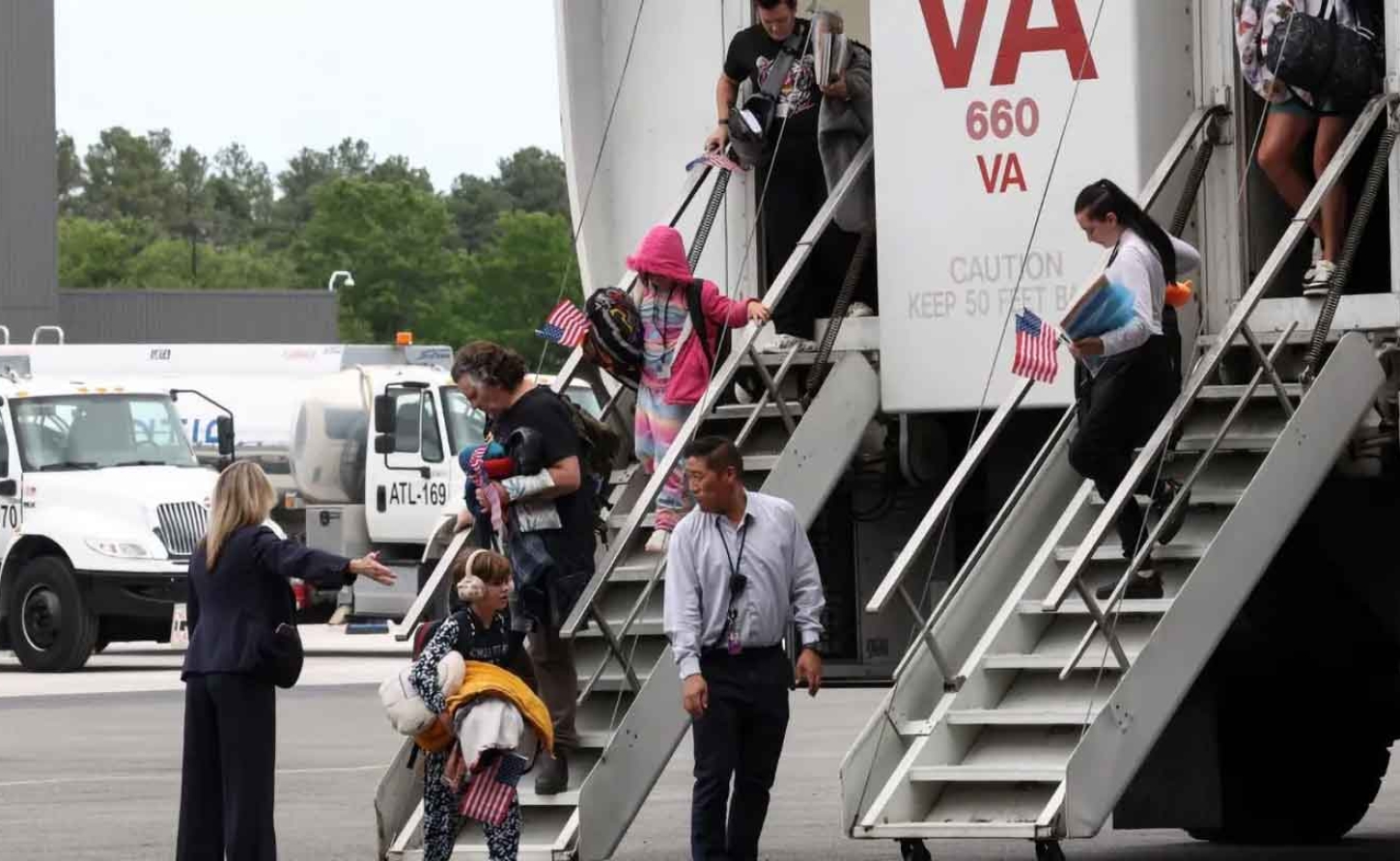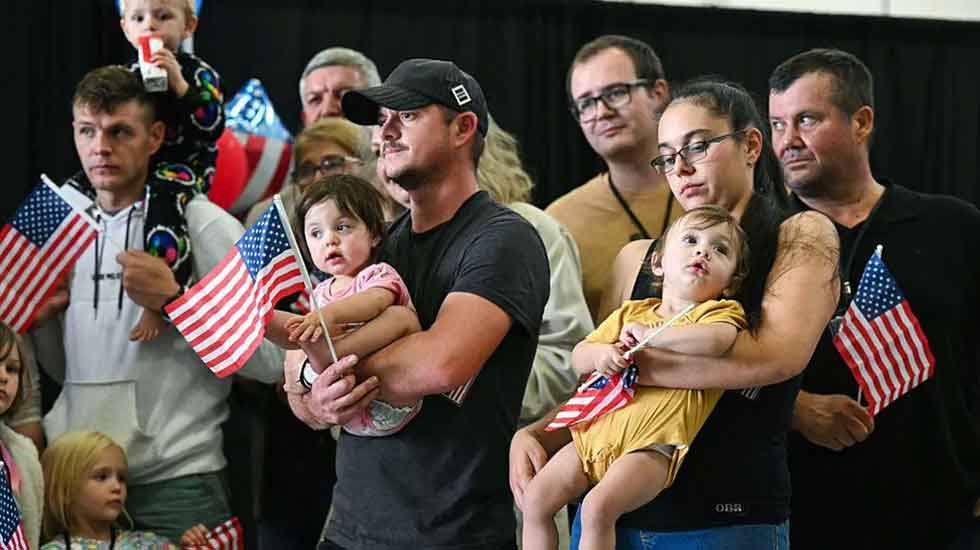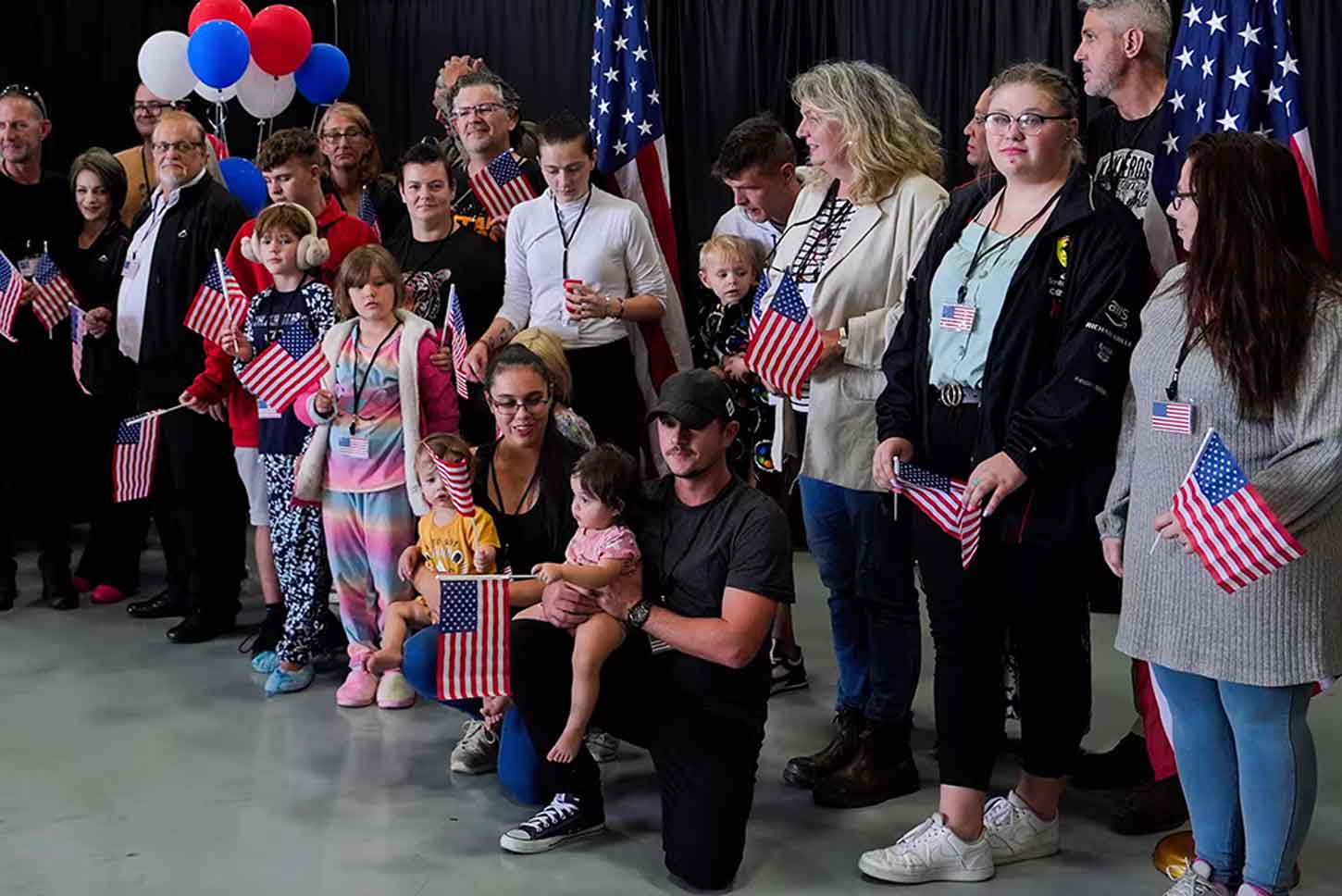USA | Trump Refugee Policy: White South Africans Given Priority

WASHINGTON DC, May 12, 2025 - In a stark demonstration of the Trump regime’s racially-charged approach to immigration, the White House rolled out the red carpet Monday for 59 white South Africans granted refugee status in America.
President Trump personally welcomed the group of Afrikaners at a time when his administration has systematically dismantled refugee protections for those fleeing violence and persecution from predominantly non-white nations.
"It's a genocide that's taking place," Trump declared from the White House lawn, echoing unsubstantiated claims popular among far-right groups. The statement came as the administration doubled down on rhetoric about an "invasion" of immigrants from poorer countries with predominantly non-white populations.
The Afrikaners' arrival follows months of consistent advocacy by Elon Musk, the South African-born billionaire and key Trump adviser whose influence has helped transform South Africa into an unexpected focal point of the administration's foreign policy.
What began as fringe rhetoric has evolved into concrete policy, with the White House making the alleged persecution of white South Africans a peculiar cornerstone of its international agenda.
The juxtaposition couldn't be more jarring: As these 59 Afrikaners—descendants of Dutch colonizers who held power during apartheid—were ushered through a fast-tracked refugee process, the administration simultaneously pulled the rug from under Afghan refugees.
 On the very same day, officials terminated legal protections that had temporarily shielded Afghans from deportation, citing an "improved security situation" in Taliban-controlled Afghanistan.
On the very same day, officials terminated legal protections that had temporarily shielded Afghans from deportation, citing an "improved security situation" in Taliban-controlled Afghanistan.
This special treatment for white South Africans represents just one element of a broader campaign against South Africa that has escalated into significant diplomatic friction.
The administration has already suspended foreign aid to the country and issued multiple public denunciations through top U.S. diplomats. Further punitive measures, including potential economic sanctions, continue to loom over bilateral relations.
Deputy Secretary of State Christopher Landau didn't mince words about why these particular refugees received preferential treatment. They "could be easily assimilated into our country," he told reporters at the airport, before adding, "I want you all to know that you are really welcome here and that we respect what you have had to deal with these last few years. We respect the long tradition of your people and what you have accomplished over the years."
South African President Cyril Ramaphosa—himself a veteran of the struggle against apartheid—firmly rejected Trump's characterization of conditions for white South Africans. "We think that the American government has got the wrong end of the stick here, but we'll continue talking to them," Ramaphosa said at a conference in Ivory Coast.
He revealed he had personally told Trump by phone that the president had received false information about discrimination against white South Africans.
The South African government has called Trump's claims "completely false," pointing out that white South Africans remain among the country's wealthiest citizens even three decades after apartheid's fall.
Economic data supports this position—white South Africans typically possess 20 times the wealth of Black South Africans and own approximately three-quarters of all private land. The unemployment rate tells an equally stark story: 46.1% for Black South Africans versus just 9.2% for whites.
Relations between Washington and Pretoria have deteriorated significantly, with the US expelling South Africa's ambassador over previous criticism of Trump. The countries are also at odds over South Africa's prominent role in a case before the International Court of Justice accusing US ally Israel of genocide in Gaza.
The diplomatic tensions reached new heights when Secretary of State Marco Rubio announced he would boycott the upcoming G20 Summit in Johannesburg—an unprecedented snub that signaled just how far the administration is willing to go in its confrontation with South Africa.
The unprecedented nature of this refugee resettlement wasn't lost on human rights organizations. "These are people who were not living in refugee camps; who hadn't fled their country.
They were the group that was most associated with the oppression of the Black majority through apartheid," said Bill Frelick, refugee policy director with Human Rights Watch. "It's not like these are among the most vulnerable refugees of the world."
The broader context makes the administration's priorities painfully clear. In January, Trump suspended the US refugee resettlement program, leaving more than 100,000 already-approved refugees stranded worldwide.
 Then in February, he signed an executive order specifically directing officials to grant refugee status to Afrikaners—the very group that enforced apartheid's brutal repression of South Africa's Black majority. This departure from Trump's otherwise closed-door policy on immigration and asylum stands out as a glaring inconsistency.
Then in February, he signed an executive order specifically directing officials to grant refugee status to Afrikaners—the very group that enforced apartheid's brutal repression of South Africa's Black majority. This departure from Trump's otherwise closed-door policy on immigration and asylum stands out as a glaring inconsistency.
The political backlash was swift and cutting. "To watch the Trump administration apply what I call their global apartheid policy... is just an outrageous insult to the whole idea of our country," said Maryland Senator Chris Van Hollen at a think tank event.
Even organizations traditionally involved in refugee resettlement have drawn their line in the sand. The Episcopal Church announced it was ending its decades-long partnership with the US government on refugee support after being asked to help resettle the white South Africans, citing its "commitment to racial justice and reconciliation."
As Laura Thompson Osuri, executive director of refugee care nonprofit Homes Not Borders, stood in the airport check-in area with her protest sign, she distilled the administration's message to its essence: "It's for showing: 'Look at us. We do welcome people as long as they look like us.'"
In response to criticism, Trump insisted the Afrikaners' race "makes no difference to me," but his administration's actions speak volumes about who is welcome at America's increasingly selective door.
-30-
